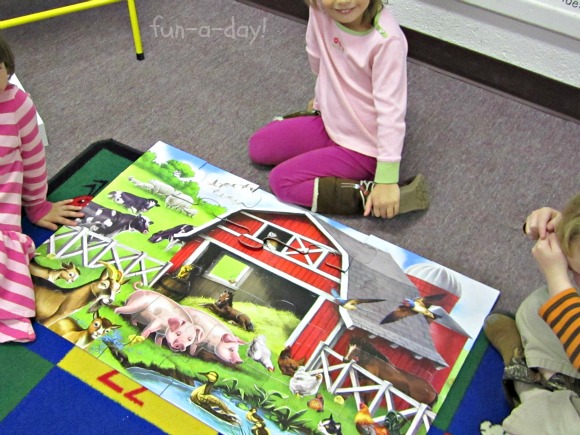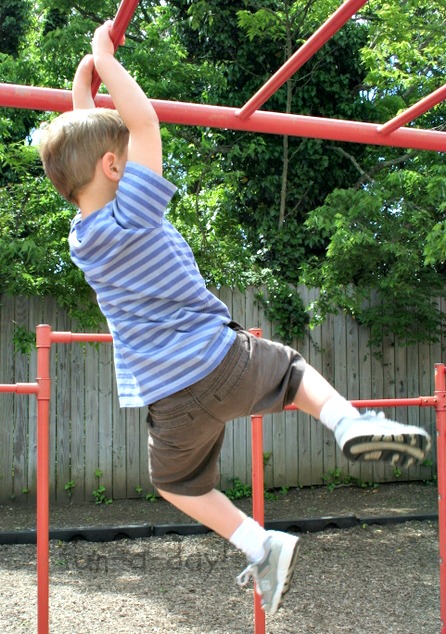Inside you’ll find a look at what children really need to know to be ready for kindergarten. It might not be what you expect!
“Look, I found this checklist on the internet about everything my son needs to know before kindergarten. But I’m worried because he doesn’t know all of his letters and letter sounds.”
“The school my daughter’s going to did a test. They said she doesn’t know how to count to 30 and that might be a problem.”
“My kid’s elementary school sent us a letter about everything they have to know before they can go to kindergarten. I’m so confused. What does it mean?”
I’ve been asked some version of these questions many times, from friends, students’ parents, and readers. I have to admit, they make me furious. Not that I’m being asked the questions . . . I love that people come to me and want my opinion on kindergarten.
It’s the fact that such inaccurate information is given to parents that gets my blood boiling. Inevitably, these checklists, pre-kindergarten tests, and kindergarten expectation memos scare parents. Either that, or they cause a slew of remarks between parents comparing children and insinuating that somehow four- and five-year-olds are less if they don’t meet every item on the lists.
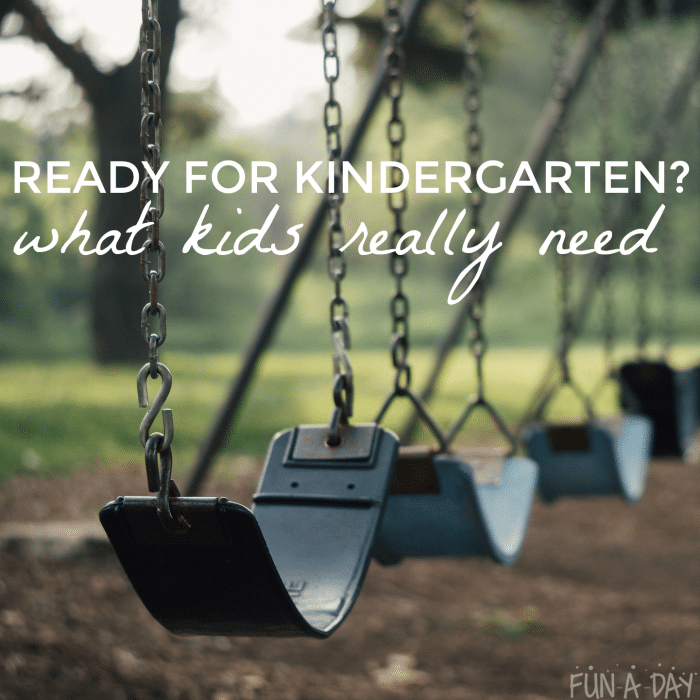
Why Talk About Kindergarten Readiness?
Because of all the inaccurate and incomplete information floating around, I think it’s imperative that early childhood educators explain this topic (both to parents and the community at large). “Kindergarten readiness” can sometimes be a hot topic full of unrealistic or incorrect expectations.
For example, it might surprise many people to know that a lot of the information on those ready for kindergarten checklists include items that are meant to be taught while kids are IN kindergarten. (Check your state’s kindergarten standards to see what I mean).
Sandi of Rubberboots and Elf Shoes (an awesome site that I follow) and I were chatting about this topic one day. Both of us being teachers, we got to talking about kindergarten readiness. The result? A cross-grade, cross-border look at what children REALLY need to know before K — from a kindergarten teacher and a pre-k teacher; a Canadian and an American.
Please note that getting ready for kindergarten is an incredibly important topic for me. I’ve been involved in early childhood education over ten years, with experience teaching both kindergarten and pre-kindergarten.
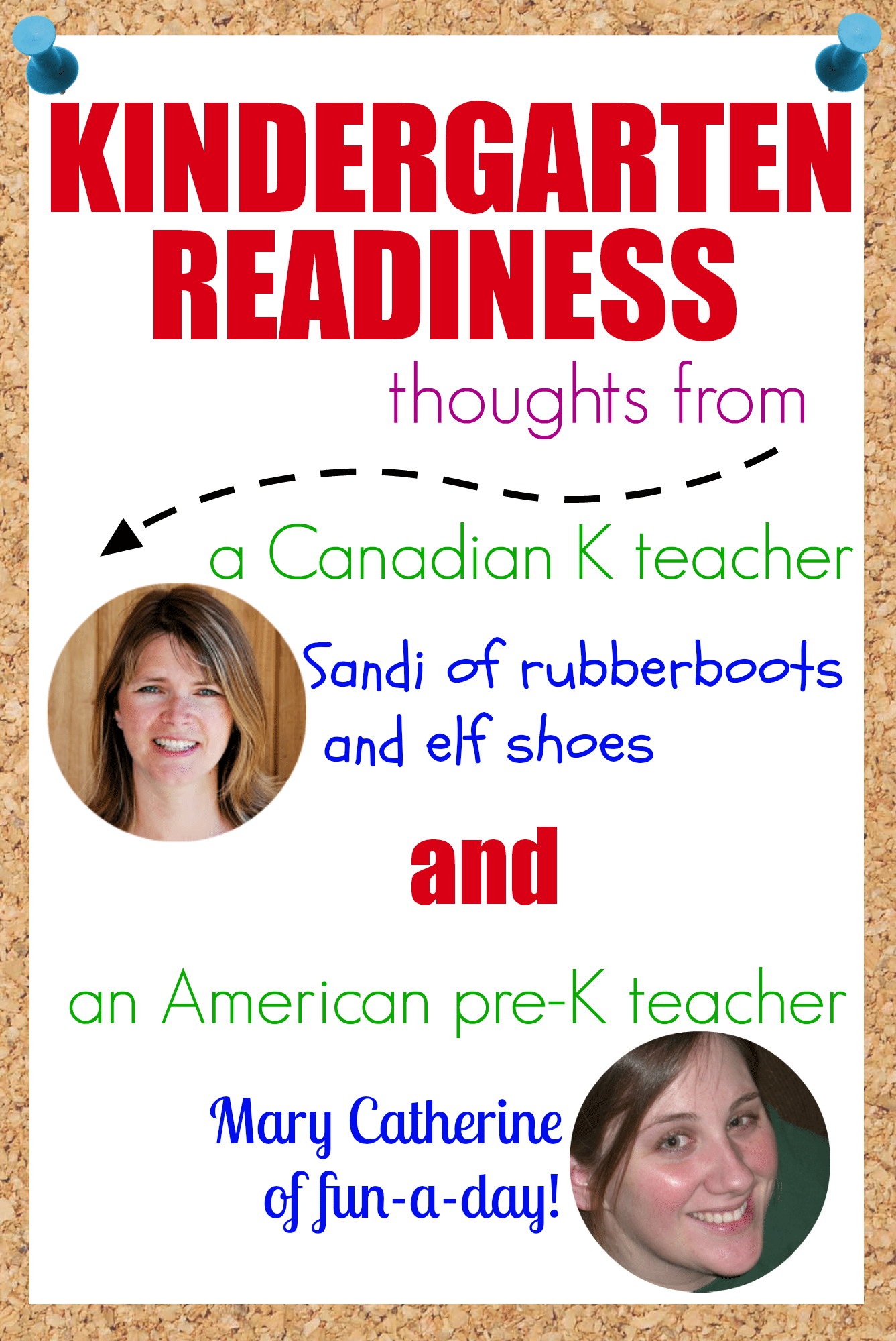
Differing Schools of Thought
There are many opinions and schools of thought when it comes to kindergarten readiness. On the one hand, some experts say that any child who is old enough should move onto kindergarten, regardless of other factors. On the other hand, some experts say that a child needs to a load of academic information before entering kindergarten. Realistically, both extremes should be taken into account.
All in all, kindergarten readiness should be looked at from a realistic point of view. This means taking into account how children are, how they learn, and what’s currently expected of children in kindergarten. Children need to have the tools to start kindergarten in a positive way, as it sets the foundation for the rest of their school career. While the purists may not always agree with this philosophy, a child’s development (in all areas) must be taken into account when considering kindergarten readiness.
What Kids REALLY Need to Be Ready for Kindergarten
I firmly believe that a child’s social, emotional, and behavioral readiness is exceedingly more important than what some assume to be academic readiness. Below are what a child really needs before starting kindergarten:
Natural Curiosity
Most children are curious by nature, albeit in different ways. Some kiddos ask “why?” on repeat, while others quietly observe and collate. As long as a child is interested in learning (in any form), she’ll be much more open to new experiences in kindergarten. A love of learning takes children to so many new places and will help them start elementary school on the right foot!
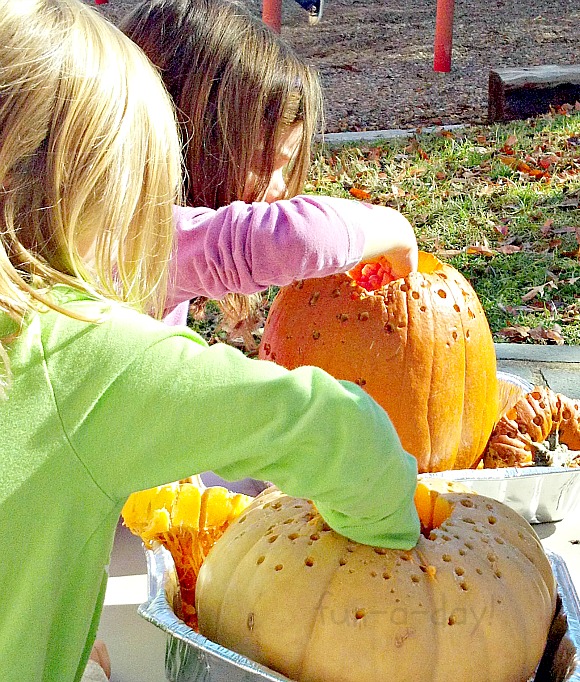
These 2 (along with many of their friends) wanted to explore the insides of pumpkins. No qualms about reaching in there to see what it was all about!!
Fine Motor Skills
Children need to be practiced at small movements of their hands and fingers. Strengthening their fingers and hands helps with writing throughout elementary school. Building with Lego, playing with play dough, and beading necklaces are some ways to strengthen children’s fine motor skills. Check out “20 Fine Motor Activities for Kids” for more ideas.
Self-Control
Young children are still developing their self-control in preschool and elementary school. They don’t need to be perfectly in-control of themselves to go into kindergarten. However, they do need to be able to sit and listen to a story. They also need to be able to quell some of their impulses (for example, the impulse to hit or push when mad). Getting along, or at least trying to get along, with other children is important.
Independence
Going into kindergarten, children need to be interested and active in becoming independent. It’s important that they are willing to try new things, and they also need to do certain things on their own. Some examples are zipping up backpacks, carrying their own lunchbox, and separating from their families. Parents can help this by giving children more and more simple tasks to do on their own. Giving children some time away from home (even in small increments) will also help with independence.
Self-Care Skills
Upcoming kindergartners should be well on their way to caring for their own bodies. They should be able to dress and undress themselves, and they should be able to independently deal with the clothes they wear to school. Bathroom skills are of the utmost importance! K kiddos must be able to use the restroom themselves, wipe themselves, and wash their hands. I cannot stress how important these skills are!!
Confidence
I’m not referring to how outgoing a child is when I refer to confidence. Shyer, quieter children who are confident in their abilities are just as ready for kindergarten as more extroverted children. No matter their temperament, children going into kindergarten should know that they can try new things on their own. They should understand that they can do their best while away from their parents.
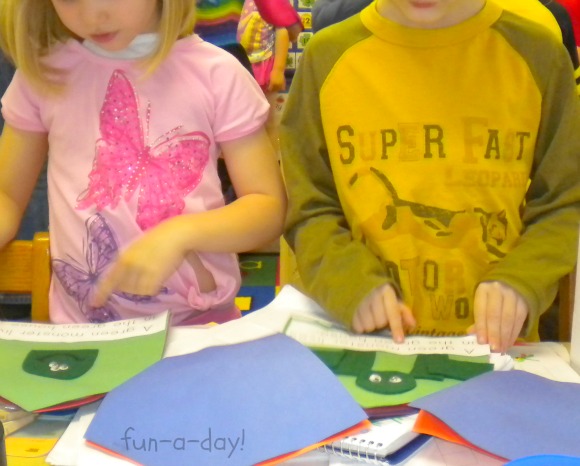
These two were still at the pre-reading stage here, but they were both so sure of themselves! They knew they could learn — not knowing didn’t stop them from trying.
But What About Academics?
You’ll notice I haven’t listed any academic skills thus far. I don’t agree with all the checklists floating around that say children need to practically be reading prior to kindergarten. Yes, sometimes kids are reading before kindergarten, and that’s great, but it is not necessary!
Upcoming kindergartners should have some basic knowledge of the alphabet, especially when it comes to the letters in their names. Being able to count and identify numerals up to 10 is a great start, as well. A good foundation for mathematical concepts like shapes, colors, and sorting is also helpful.
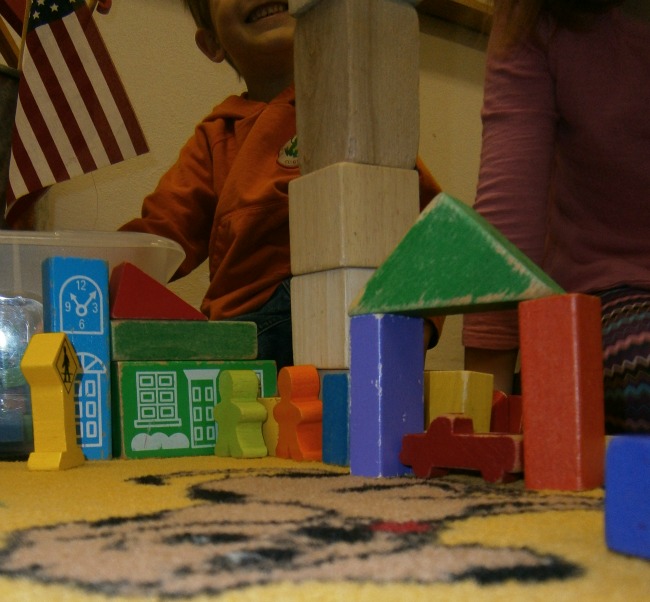
So much learning going on while the kiddos were building — setting the foundation for academic skills they’ll learn in kindergarten.
I cannot stress enough that academic readiness is only one small part of being ready for kindergarten! I would suggest that you get a hold of the kindergarten standards of learning for your state. They will tell you what your child needs to know by the end of kindergarten.
Now hop on over to Rubberboots and Elf Shoes to read what Sandi, and her kindergartners, have to say about getting ready for kindergarten!
More Resources About Kindergarten Readiness
Deborah of Teach Preschool‘s book Ready for Kindergarten
No Time for Flash Cards’ Why I’m Ditching the Kindergarten Checklist
How Wee Learn’s Learning Naturally
Get Ready for K Through Play Pinterest Board
Originally published on August 13, 2013.


